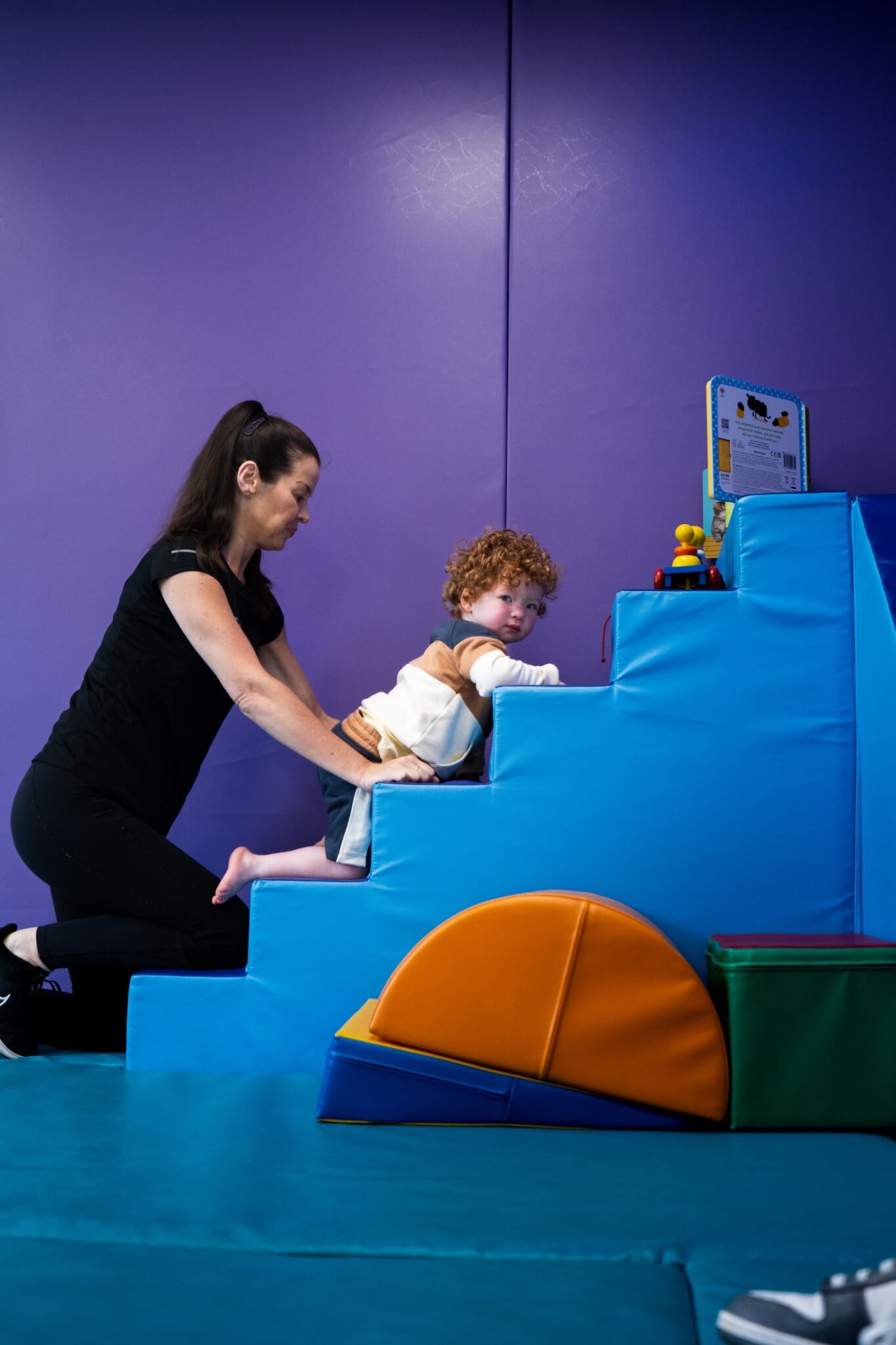
Paediatric physiotherapy is a field of clinical practice focused on the provision of rehabilitation services to children from birth, during childhood and throughout their adolescent years. Physical therapy in children is not that well known and isn’t talked about or marketed enough within the industry. However, it’s more common than you think. There are many situations in which children may experience difficulties with motor skills and physical development, due to illness, disability, or injury. That’s when children should visit a Physiotherapist to help with their recovery journey or help manage their physical health.
Common concerns that require visiting a paediatric physiotherapist may include poor balance and coordination, frequent falls, poor posture, and muscular pain. Babies experiencing difficulties turning their heads, rolling, sitting, crawling, and walking can also benefit from physiotherapy. A paediatric physiotherapist uses methods such as strengthening, exercise, stretching, movement training, intensive therapy programs, motor learning and play, and education to treat children effectively.
Flex Health based in Hull and East Yorkshire have developed a list of common reasons why parents/carers should look at physiotherapy for their children in the years ahead:
Physiotherapy for Children is important to prevent physical complications
It’s true that children heal faster than adults, but that’s not always the case. This old way of thinking can lead to physical complications. For instance, ankle sprains continue to go untreated among children since parents assume that putting cold packs or wrapping the ankle in tensor bandages is enough. There is also a perception of healing once the pain has subsided. As a result, the child returns to an activity or sport before adequate healing has occurred. This only increases the risk of re-injury or a major injury. Ankle sprains could also result in bone avulsion or unstable joints because the muscles are not fully developed, and eventually cause persistent joint pain in the future.
To treat more serious physical conditions
Paediatric physiotherapy not only manages motor skill development and common childhood injuries. The practice also creates a positive impact on the lives of children experiencing more serious conditions that limit their physical capabilities. It can be applied to infants and children suffering from downs syndrome, spina bifida, cerebral palsy, developmental coordination disorder, hypotonia, and other genetic conditions. Some studies show it can also help those with neurodevelopmental disorders, such as autism.
Physiotherapy for Children is important to help improve school performance
Do you notice your child constantly fidgeting and shifting around while eating, watching television, or doing their homework? Parents usually dismiss this behaviour as typical childhood restlessness, but there may be a more serious underlying cause. A child may be feeling significant discomfort caused by poor seating comfort or physical inactivity when sitting in class all day. Since there is no ‘pain’ to report, it goes untreated. This can lead to poor sleep quality, a decrease in cognitive performance, an inability to focus, and difficulty in finishing tasks on time. Physical therapy can help return a child’s state of physical comfort, therefore, improving their performance in school.
To provide them with greater awareness
By exposing children to physiotherapy at an early age, they will become more aware of their physical selves. Physiotherapists can help them better understand their muscles, bones, tissues, tendons, and ligaments, and how they all work together. They will realise the difference between growing pains and sustained injuries that they should report to their parents. They will learn the proper form to make when participating in their favourite sports or physical activity to prevent injuries and improve their performance.
We hope this article has helped develop an understanding as to why children would need to visit a physiotherapist. To book an initial assessment with us, please visit our contact page to get in touch, or you can book an appointment directly online here.
